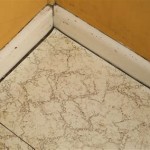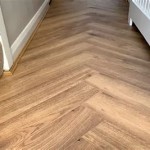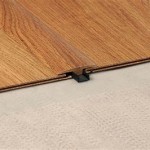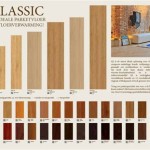Best Stone Flooring For Kitchens
The kitchen, often considered the heart of a home, endures a significant amount of foot traffic, spills, and general wear and tear. Selecting the appropriate flooring material is, therefore, a critical decision. Stone flooring offers a compelling combination of durability, aesthetic appeal, and timeless elegance, making it a popular choice for kitchens. However, the term "stone flooring" encompasses a wide variety of materials, each with its own unique characteristics, advantages, and disadvantages. Understanding these differences is essential for homeowners aiming to make an informed decision that aligns with their lifestyle, budget, and design preferences.
This article aims to provide a comprehensive overview of the best stone flooring options for kitchens, exploring their key properties, maintenance requirements, and suitability for various kitchen environments. The intention is to offer homeowners the necessary information to navigate the selection process and choose a stone floor that will enhance both the functionality and beauty of their kitchen for years to come.
Granite: The Enduring Champion
Granite is an igneous rock known for its exceptional hardness, durability, and resistance to heat, scratches, and stains. Its inherent strength makes it an ideal choice for high-traffic areas like kitchens. Granite's density prevents the absorption of liquids, further contributing to its stain resistance, provided it is properly sealed. While granite is naturally stain-resistant, sealing is still highly recommended to protect against acidic spills like wine or vinegar, which can potentially etch the surface over time.
Aesthetically, granite offers a wide range of colors and patterns, thanks to its diverse mineral composition. From speckled blacks and grays to vibrant reds, greens, and blues, granite can complement virtually any kitchen design. No two granite slabs are exactly alike, ensuring a unique and individualized look. Granite is available in various finishes, including polished, honed, and brushed. A polished finish provides a glossy, reflective surface, while a honed finish offers a matte, more natural appearance. A brushed finish provides texture and added slip resistance.
Installation of granite flooring typically requires professional expertise due to the weight and hardness of the material. Precise cuts and proper leveling are crucial for a long-lasting and visually appealing result. The initial cost of granite flooring can be higher than some other options, but its exceptional durability and longevity can make it a worthwhile investment in the long run.
Maintenance of granite flooring is relatively straightforward. Regular sweeping or vacuuming is sufficient to remove loose dirt and debris. For deeper cleaning, a pH-neutral cleaner specifically designed for stone is recommended. Avoid using abrasive cleaners or harsh chemicals, as these can damage the sealant and potentially dull the surface. With proper care, granite flooring can maintain its beauty and functionality for decades.
Marble: Timeless Elegance and Luxury
Marble, a metamorphic rock formed from limestone or dolomite, is renowned for its elegant veining and smooth, polished surface. Its timeless beauty and luxurious appeal make it a popular choice for homeowners seeking to create a sophisticated kitchen ambiance. Marble is available in a variety of colors, ranging from classic white and gray to more exotic shades of green, pink, and black. The distinctive veining patterns, created by mineral impurities, add character and visual interest to each marble slab.
While marble is undeniably beautiful, it is also a relatively soft and porous stone compared to granite. This means it is more susceptible to scratches, stains, and etching from acidic substances. Spills should be cleaned up immediately to prevent permanent damage. Properly sealing marble flooring is essential to protect it from moisture and stains. The sealant should be reapplied periodically, depending on the traffic and usage of the kitchen.
Due to its porous nature, marble requires more careful maintenance than granite. Avoid using harsh chemicals or abrasive cleaners, as these can damage the sealant and etch the surface. A pH-neutral cleaner specifically designed for marble is recommended for regular cleaning. Consider using mats or rugs in high-traffic areas to further protect the floor from scratches and wear.
The cost of marble flooring can vary significantly depending on the type, rarity, and quality of the stone. High-quality marble with intricate veining patterns can be quite expensive. Professional installation is highly recommended to ensure proper leveling and sealing. While marble may require more maintenance than some other stone flooring options, its timeless beauty and luxurious appeal make it a worthwhile choice for homeowners who are willing to invest the time and effort to care for it properly.
Slate: Rustic Charm and Durability
Slate is a fine-grained, metamorphic rock known for its distinctive layered appearance and natural cleft surface. Its rustic charm and earthy tones make it a popular choice for kitchens with a more casual or rustic design aesthetic. Slate is available in a range of colors, including gray, black, green, and purple. The natural cleft surface provides excellent slip resistance, making it a safe and practical choice for kitchens where spills are common.
Slate is a relatively durable and water-resistant stone, making it suitable for high-traffic areas like kitchens. However, it is still susceptible to scratching and staining, especially from oily substances. Sealing slate flooring is recommended to protect it from moisture and stains. The sealant should be reapplied periodically, depending on the traffic and usage of the kitchen.
Maintenance of slate flooring is relatively straightforward. Regular sweeping or vacuuming is sufficient to remove loose dirt and debris. For deeper cleaning, a pH-neutral cleaner specifically designed for stone is recommended. Avoid using abrasive cleaners or harsh chemicals, as these can damage the sealant and potentially dull the surface.
The cost of slate flooring is generally more affordable than granite or marble. Installation can be more challenging due to the uneven surface of natural cleft slate. Professional installation is recommended to ensure proper leveling and sealing. Slate flooring offers a unique combination of rustic charm, durability, and affordability, making it a compelling choice for homeowners seeking a natural and practical kitchen flooring option.
Limestone: Natural Beauty and Versatility
Limestone is a sedimentary rock primarily composed of calcium carbonate. It offers a warm, natural beauty and versatility that complements a variety of kitchen styles. Limestone is available in a range of colors, from creamy beige and light gray to darker shades of brown and black. Its relatively soft texture allows for a variety of finishes, including honed, tumbled, and brushed, each offering a unique aesthetic appeal.
While limestone is visually appealing, it is also a relatively porous stone compared to granite or slate. This means it is more susceptible to staining and etching from acidic substances. Sealing limestone flooring is crucial to protect it from moisture and stains. The sealant should be reapplied periodically, depending on the traffic and usage of the kitchen. Spills should be cleaned up immediately to prevent permanent damage.
Maintenance of limestone flooring requires some care. Avoid using harsh chemicals or abrasive cleaners, as these can damage the sealant and etch the surface. A pH-neutral cleaner specifically designed for limestone is recommended for regular cleaning. Consider using mats or rugs in high-traffic areas to further protect the floor from scratches and wear.
The cost of limestone flooring can vary depending on the type, quality, and finish of the stone. Professional installation is recommended to ensure proper leveling and sealing. Limestone flooring offers a natural beauty and versatility that can enhance the aesthetic appeal of any kitchen, but it requires more diligent maintenance than some other stone flooring options.
Travertine: Warmth and Texture
Travertine is a type of limestone formed by mineral springs, distinguished by its characteristic pitted surface and warm, earthy tones. It is often available in shades of beige, cream, and brown, and its natural variations in color and texture add character and visual interest. The porous nature of travertine necessitates sealing to prevent staining and moisture absorption. The holes can be filled, typically with a grout matching or complementing the tile color, or left unfilled for a more rustic appearance.
Travertine offers a warm and inviting look, making it suitable for kitchens seeking a natural and relaxed ambiance. While durable, travertine is softer than granite and can be susceptible to scratching and etching from acidic substances. Spills should be cleaned promptly. Regular sealing is essential, with the frequency dependent on the level of traffic and exposure to liquids.
Maintenance of travertine flooring involves regular sweeping or vacuuming to remove debris. Cleaning should be done with a pH-neutral cleaner specifically designed for natural stone. Avoid harsh chemicals or abrasive cleaners that could damage the sealant or the stone itself. For unfilled travertine, grout lines may require periodic cleaning to prevent staining.
The cost of travertine can vary depending on the quality, size, and finish of the tiles. Professional installation is generally recommended to ensure proper sealing and grout application (if filling is desired). Travertine provides a unique blend of natural beauty and warmth to a kitchen, though its maintenance requirements should be carefully considered.

5 Of The Best Types Stone Flooring For Kitchens Bathrooms And More Real Homes

10 Natural Stone Flooring Trends Quorn

25 Stone Flooring Ideas With Pros And Cons Best For Kitchen Floor Tile

Stone Flooring Guide Types And S To Consider Forbes Home

5 Of The Best Types Stone Flooring For Kitchens Bathrooms And More Real Homes

Which Is The Best Stone Flooring Surrey Marble Granite

What Type Of Floor Tile Is Best For Your Kitchen

5 Ideal Types Of Natural Stone Floors To Use For Your Kitchen Granite Gold

Choosing The Best Flooring In Your Hub Of Home Cawdor Stone

The Best Flooring For Kitchens In 2024 Domino
Related Posts








